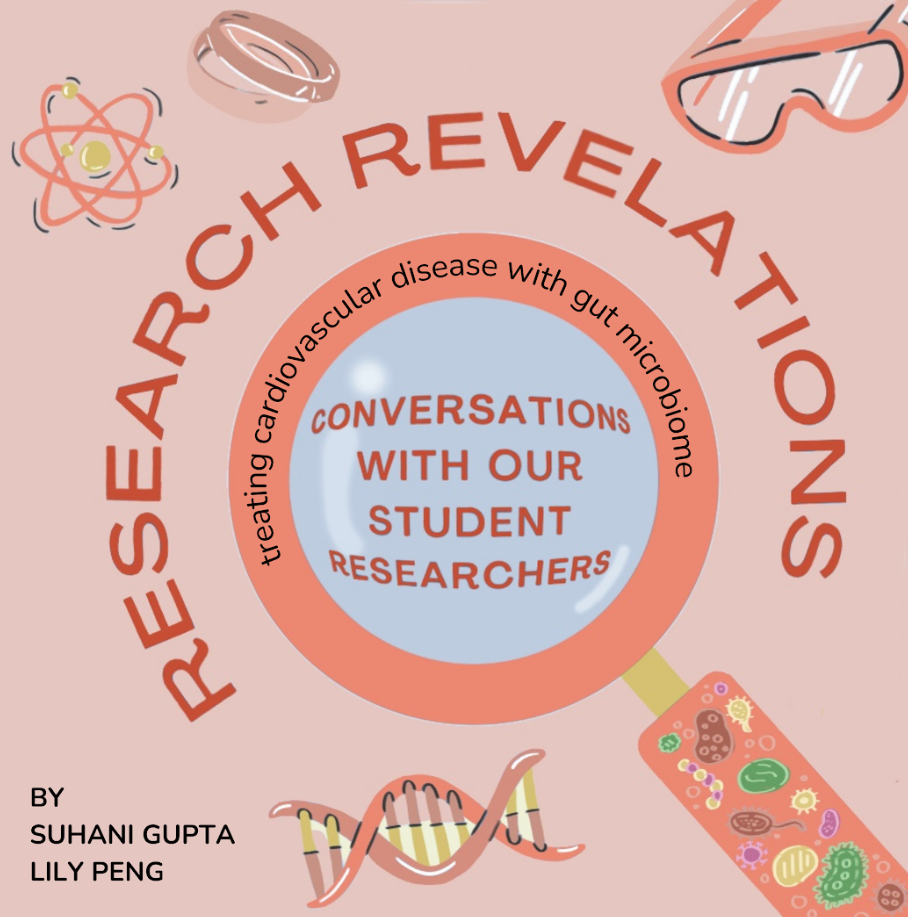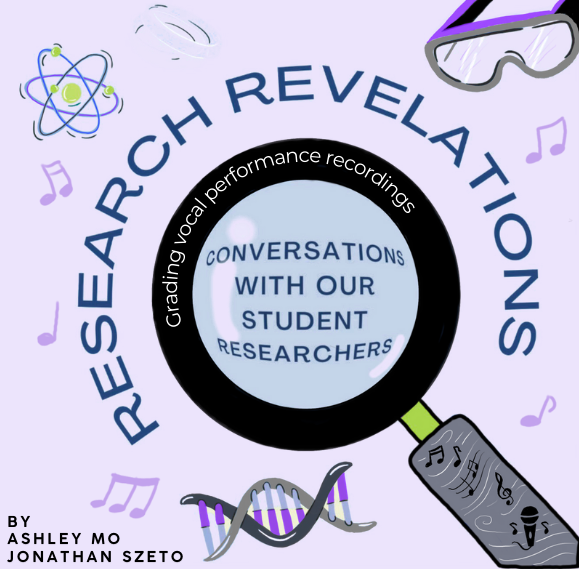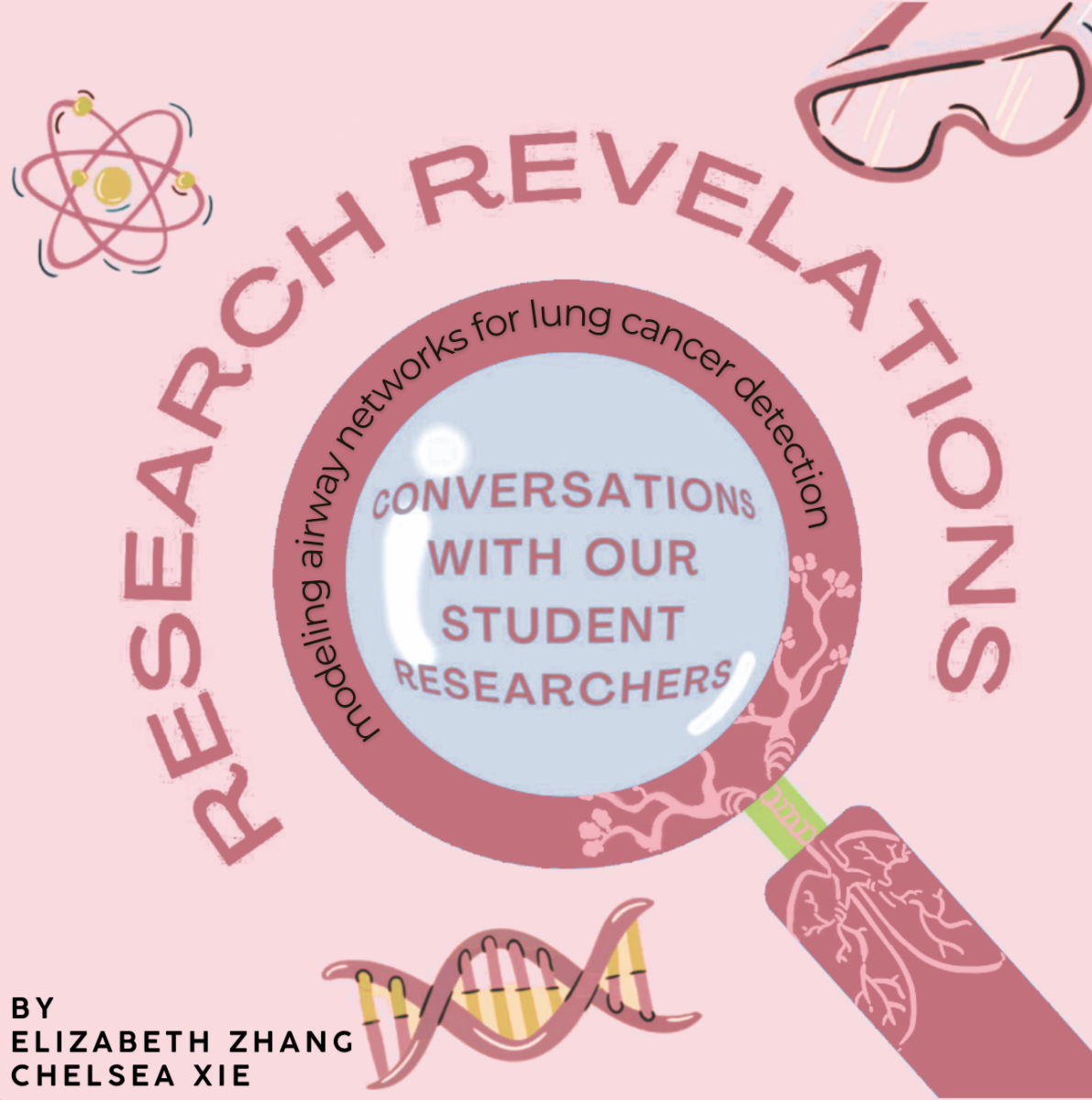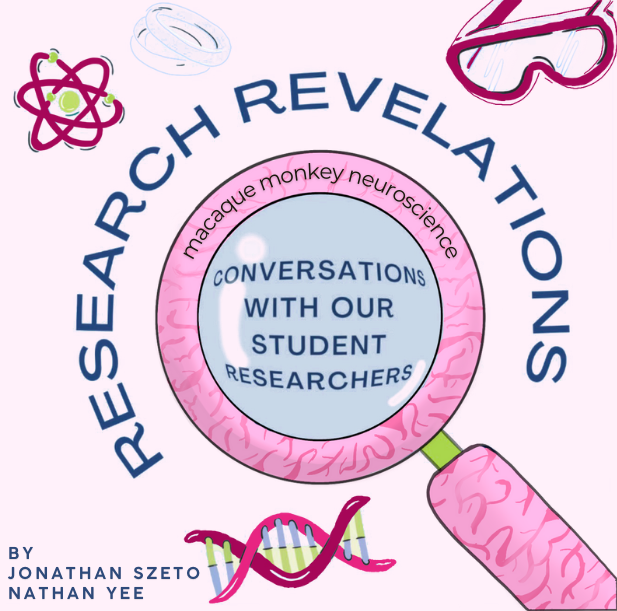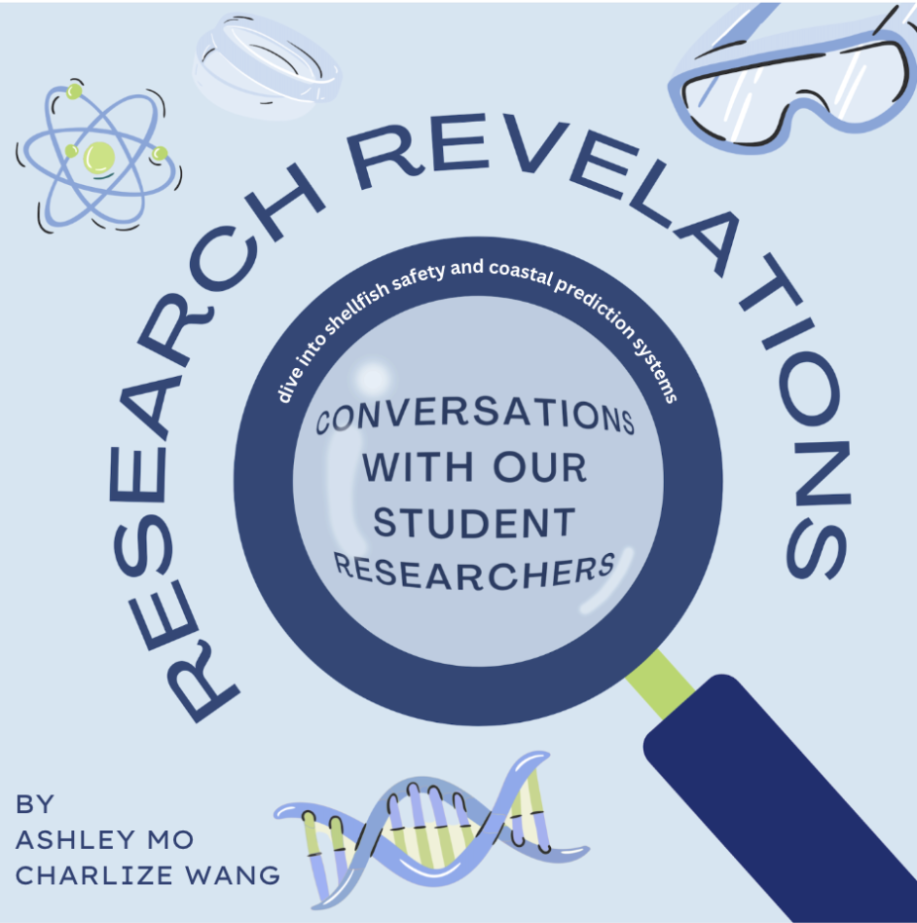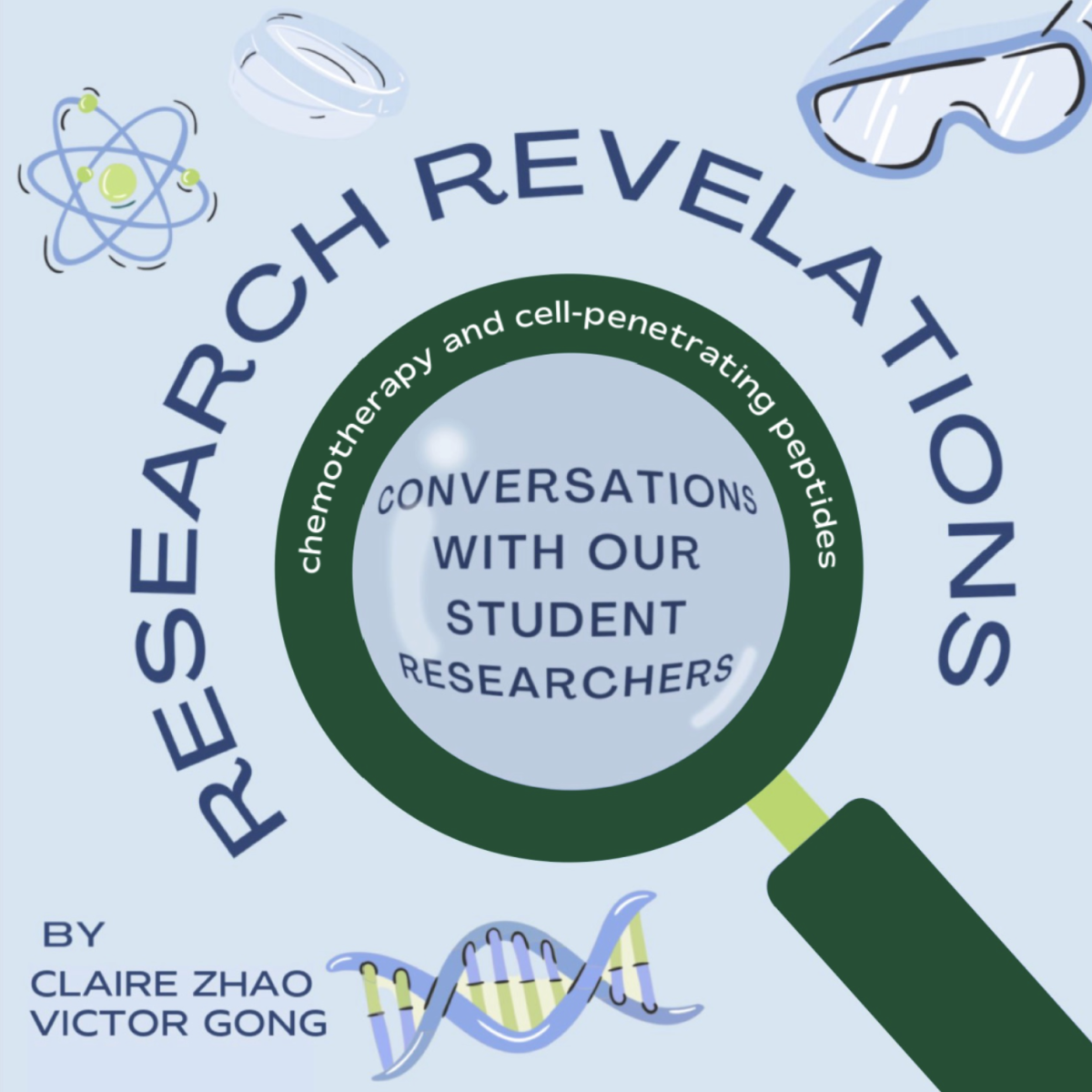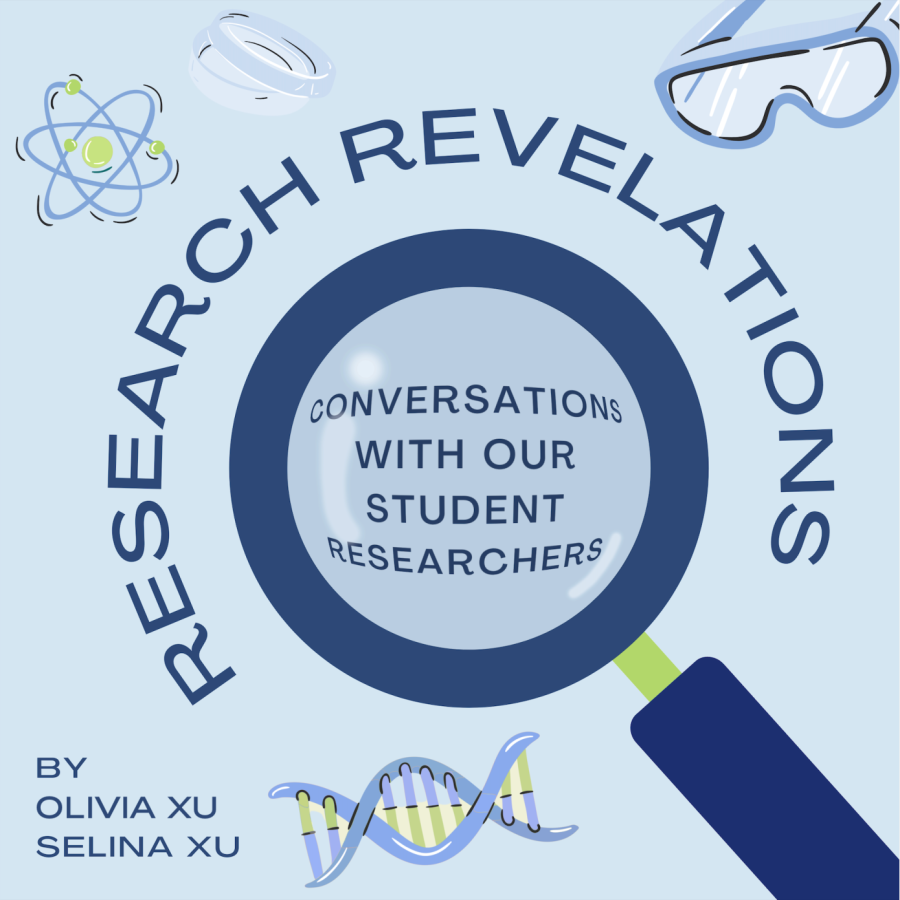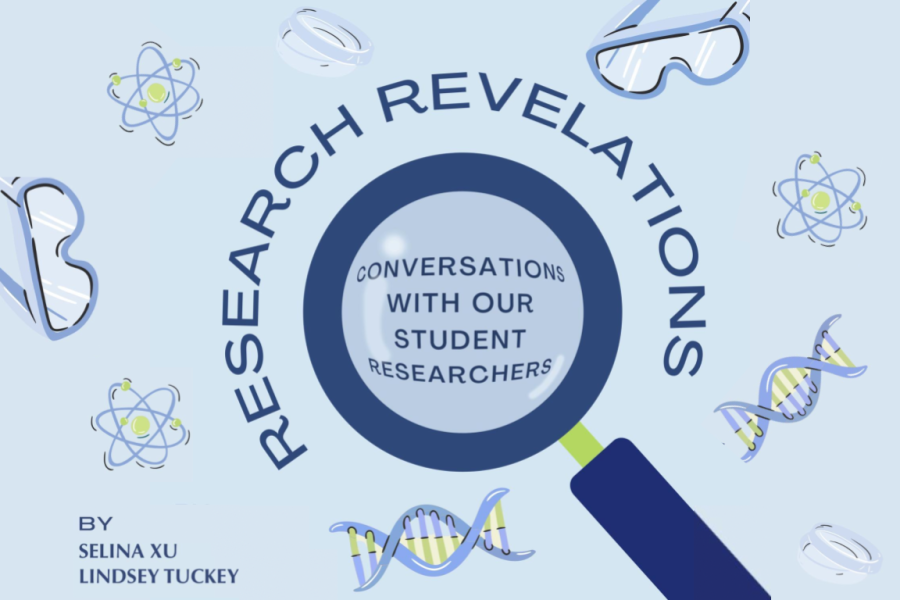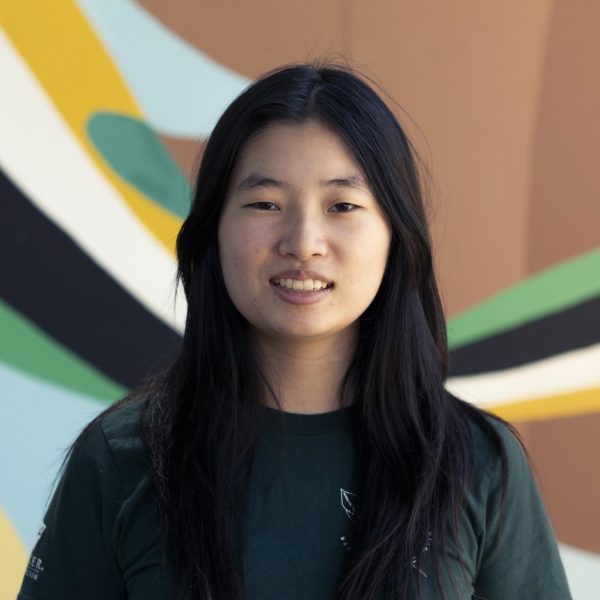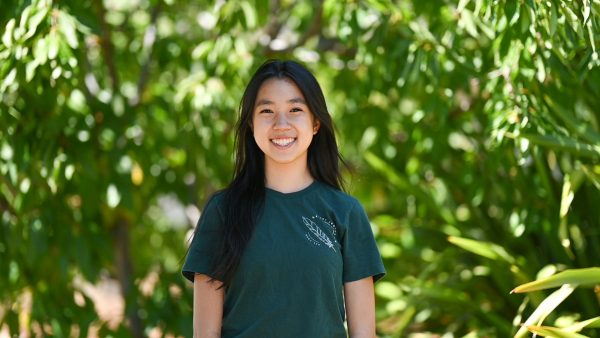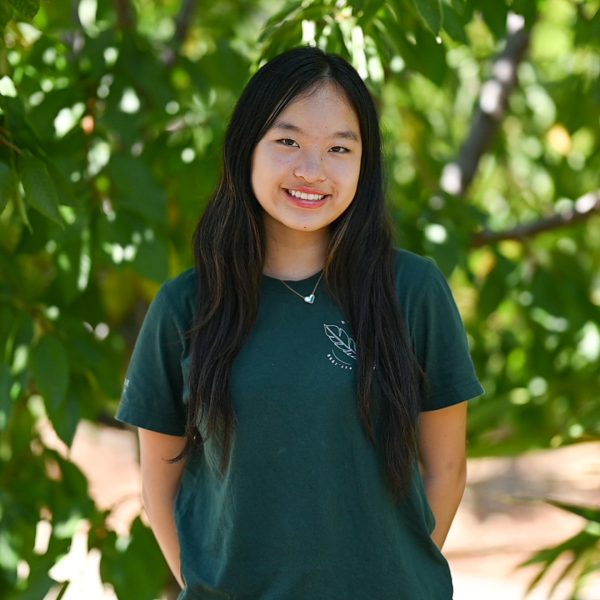This is the sixth installment of Research Revelations: Conversations with Our Student Researchers, a podcast where Aquila staff members talk to student researchers about their projects and research goals. In this episode, reporter Chelsea Xie (10) and Winged Post Managing Editor Claire Zhao (12) meet with Abby Wang (10) to discuss her work in bee learning and memory.
Chelsea: Hi everyone, I’m Chelsea.
Claire: I’m Claire.
Chelsea: And welcome back to Research Revelations: Conversations With Our Student Researchers.
Claire: Today, we’re with sophomore Abby Wang to talk about her work with animal behavior and model organisms.
Chelsea: Thank you so much Abby for joining us. Our first question is, what is your research all about, and how did you get started?
Abby: My most recent research project was on bees, on the effect of organic chemicals on a bee’s learning and memory. I feel like it was back in my first research project, I had reached out to a local beekeeper and we just kept in contact. A while later, I found inspiration after reading a bunch of news articles about the declining bee population, and I reached out again to that beekeeper.
Chelsea: Can you bring us a little bit more through your research process, like how did you decide on this topic, and why did you choose it?
Abby: I kind of always liked to work with animal behaviors, especially from the beginning of my first project, so I just decided to continue in that trend, and after seeing the news about how bee populations are drastically declining throughout the years, I decided to test a few solutions for that issue. So yeah, that’s kind of how it started. And my partner and I, we first gathered background knowledge about beekeeping and bee health, all that stuff, and then we slowly designed our experimental environment and experimental methods from scratch.
Claire: How was the actual experimental process? How did you care for the bees? What types of bees were there?
Abby: We had a lot of help from our local beekeepers association in caring for the bees. I actually got a beehive installed in my backyard, and my partner and I had to take regular care of the bees, especially during the winter, which included miticide treatments, basically pesticides for bees, and feeding them literal protein blocks every month. And I believe the species of the bee, the subspecies, is the Italian Apis mellifera which is the domesticated western honey bee.
Chelsea: Can you tell us something more specific about something exciting that you learned or experienced doing your research?
Abby: The part that I take the most pride in the research process was when we finally got a working testing environment. Because from previous research, we had discovered that bees can show color association. They can remember colors and remember positive associations with that color. So after we finally got bees to land on our colored platforms, we had blue as a positive color and yellow as a negative color that was coated with a chemical that bees typically don’t like. And after we got the bees to finally land on the platforms without any type of stimulus, that was just a really happy moment, and we could say our initial training process was done.
Claire: Can you explain a bit more about how you conditioned the bees to do this?
Abby: As I mentioned before, bees have shown that they can differentiate between colors, and basically throughout around a month we put sugar water on blue platforms and then we put quinine, which is a bitter chemical that bees don’t like, on yellow platforms. At first, it was just allowing bees to fly back and forth from the hive to the platforms and drink the sugar and transmit that information to other bees in the hive. And eventually, we began placing bees in a controlled box environment, where they would fly to several different small blue platforms or yellow platforms.
Claire: Was this your first time working with bees?
Abby: Ok, it was my first time working very hands on with a beehive as I actually installed a beehive in my backyard specifically for this purpose. But in seventh grade, which was the first year I started doing science research, I did a project on pollination which started my interest in beekeeping.
Claire: How was it actually handling bees for the first time? Were you surprised in any way?
Abby: The misconception about bees is like: “Oh, when they land on you they’re about to sting you, they’re super aggressive and they’ll protect their hive at all costs,” which is semi-true. But actually, especially the hive that I was working with, with my partner, they were really gentle bees, they barely stung at all. Though, it’s inevitable if you’re doing research hands-on in the hive. But, it was a new experience. I found it really interesting. It opened my eyes to kind of a new side of beekeeping.
Chelsea: Can you tell us some more specifics about how you collected data and what were some challenges and also some successes with that?
Abby: Working with live organisms in a wet lab kind of setting, it’s hard to control the outcomes. Your data appears to be very noisy, and lots of bee stings. Lots of bee stings. It’s hard managing live organisms in this kind of environment. But my partner and I, we found different work throughs for each of the obstacles that we encountered, and we actually got a working testing environment.
Chelsea: Can you tell us about a major obstacle you encountered during your research and how you overcame it?
Abby: One major obstacle that came with working with live animals is just controlling the experiment. For example, when we first introduced the box into the bees’ testing process, they were really panicked because if you were stuck in a dark box and you didn’t know the way out, of course, you would be really nervous, you’d be trying to escape. So bees were trying to crawl out of the box instead of focusing on the platforms. But eventually, we figured out that they were attracted to the light as we had a clear cover on the top of the box, so we could have recordings. We actually just covered the whole box with a blanket and the bees actually became much more calm.
Claire: How did you do those recordings of the bees?
Abby: We were working with limited resources, so it was just an iPhone stand with an iPhone attached to it and a little bit of light that was being let through the blanket. That’s how we took our recordings.
Claire: What was the main product or outcome of your project?
Abby: We tested around four different organic chemicals for their effects on learning and memory, and we discovered certain non-fatal concentrations for each of the chemicals that the bees were allowed to take. Using those chemicals, we tested their learning and memory in a controlled environment, and we found that a couple of them actually did improve their learning and memory slightly.
Chelsea: What were the chemicals specifically?
Abby: I believe we used lactic acid, capric acid and then two essential oil mixtures which previous beekeepers have said that theoretically they could help with the bees’ neural functions.
Claire: Was there anything that you were particularly just really surprised by or any expectations that you had going forward that became disproven?
Abby: My partner and I, we weren’t really sure which, if any, organic chemicals would have an effect on learning and memory. A lot of beekeepers previously had mentioned that essential oil mixtures could be very effective in killing off the mites. But actually, in our experiments, we found the essential oils had the highest mortality rates in the smallest concentrations. So that was surprising.
Chelsea: How do you hope this has a broad impact and how do you hope to see your research go on in the future?
Abby: Definitely organic chemicals for bees. It’s definitely a step forward because organic chemicals are shown to have a less harmful effect on bees themselves, because current synthetic chemicals actually cause harm to learning and memory of the bee. So if beekeepers or bee researchers are able to find and synthesize organic compounds that can kill off these mites while still retaining the cognitive function of these bees, that could be really helpful for the future. It would be able to save a pollinator that pollinates a large majority of the plants on this earth.
Chelsea: Going off of that, what did you learn from your research, either personally or academically that really stood out to you?
Abby: Definitely the literature review. I just learned a lot of technical stuff about bees and even about their care. Personally, last year was the most labor intensive of my research projects, physically caring for very active organisms, animals. So, I’ve learned to be more patient and to really observe where things started to go wrong or go differently than I expected and retrace my steps and just go from there.
Claire: What do you think is the most important thing that you’ve learned in your research?
Abby: We learned this in science class and stuff, but the scientific method. It’s really important to follow the scientific method to make sure all of your results are sound and consistent with previous research. And yeah, just being really conscientious of every single variable you’re changing, every single thing that’s going on. You have to record every observation to make sure that your experiment is really controlled and that the results are actually verifiable.
Chelsea: And more in general, is there anything you’re looking forward to doing in this field? Any thoughts for the future at all?
Abby: I would like to go more into animal behavior, though it’s a time consuming field. It’s very labor intensive. I just like working with creatures, model organisms and such, and I really hope that I will be able to do more research projects in the future like this one.
Chelsea: Thank you for listening to today’s episode of Research Revelations: Conversations with Our Student Researchers. We hope you enjoyed hearing about Abby Wang’s work in animal behavior and model organisms.
Claire: If you are a student researcher and would like to be featured next, please feel free to email us at [email protected].
Chelsea: This is Chelsea.
Claire: This is Claire.
Chelsea: And we’ll see you next time.


















![“[Building nerf blasters] became this outlet of creativity for me that hasn't been matched by anything else. The process [of] making a build complete to your desire is such a painstakingly difficult process, but I've had to learn from [the skills needed from] soldering to proper painting. There's so many different options for everything, if you think about it, it exists. The best part is [that] if it doesn't exist, you can build it yourself," Ishaan Parate said.](https://harkeraquila.com/wp-content/uploads/2022/08/DSC_8149-900x604.jpg)




![“When I came into high school, I was ready to be a follower. But DECA was a game changer for me. It helped me overcome my fear of public speaking, and it's played such a major role in who I've become today. To be able to successfully lead a chapter of 150 students, an officer team and be one of the upperclassmen I once really admired is something I'm [really] proud of,” Anvitha Tummala ('21) said.](https://harkeraquila.com/wp-content/uploads/2021/07/Screen-Shot-2021-07-25-at-9.50.05-AM-900x594.png)







![“I think getting up in the morning and having a sense of purpose [is exciting]. I think without a certain amount of drive, life is kind of obsolete and mundane, and I think having that every single day is what makes each day unique and kind of makes life exciting,” Neymika Jain (12) said.](https://harkeraquila.com/wp-content/uploads/2017/06/Screen-Shot-2017-06-03-at-4.54.16-PM.png)








![“My slogan is ‘slow feet, don’t eat, and I’m hungry.’ You need to run fast to get where you are–you aren't going to get those championships if you aren't fast,” Angel Cervantes (12) said. “I want to do well in school on my tests and in track and win championships for my team. I live by that, [and] I can do that anywhere: in the classroom or on the field.”](https://harkeraquila.com/wp-content/uploads/2018/06/DSC5146-900x601.jpg)
![“[Volleyball has] taught me how to fall correctly, and another thing it taught is that you don’t have to be the best at something to be good at it. If you just hit the ball in a smart way, then it still scores points and you’re good at it. You could be a background player and still make a much bigger impact on the team than you would think,” Anya Gert (’20) said.](https://harkeraquila.com/wp-content/uploads/2020/06/AnnaGert_JinTuan_HoHPhotoEdited-600x900.jpeg)

![“I'm not nearly there yet, but [my confidence has] definitely been getting better since I was pretty shy and timid coming into Harker my freshman year. I know that there's a lot of people that are really confident in what they do, and I really admire them. Everyone's so driven and that has really pushed me to kind of try to find my own place in high school and be more confident,” Alyssa Huang (’20) said.](https://harkeraquila.com/wp-content/uploads/2020/06/AlyssaHuang_EmilyChen_HoHPhoto-900x749.jpeg)




